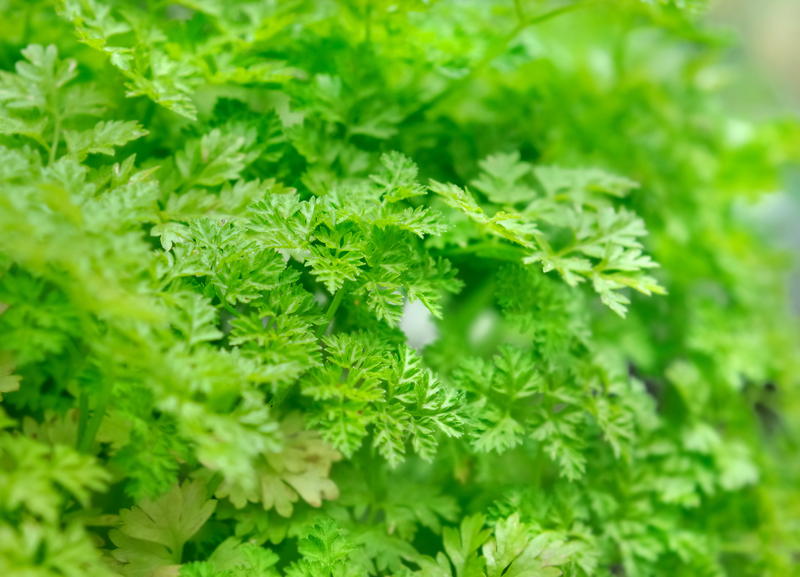9 Essential Tips Every Beginner Gardener Needs to Know
Posted on 30/06/2025
9 Essential Tips Every Beginner Gardener Needs to Know
Are you excited to cultivate your own green oasis? Gardening is a rewarding hobby that connects you with nature, enhances curb appeal, and can even put fresh, healthy food on your table. But if you're new to the gardening world, the wealth of advice can feel overwhelming. This in-depth guide details 9 essential tips every beginner gardener needs to know--helping you grow confidently and successfully in your backyard or even on a sunny windowsill.
1. Understand Your Garden Space
Before you buy seeds or plants, it's vital to get to know your gardening environment. Your space greatly impacts the plants you can grow and how you care for them.
Analyze Sunlight and Shade
- Observe your space throughout the day: How many hours of sunlight do different areas get? Most vegetables and flowers need at least 6 hours of sun daily.
- Note shaded spots: These can be perfect for ferns, hostas, or other shade-loving plants.
Check Soil Conditions
- Test your soil's texture: Is it sandy, clay-like, or somewhere in between? Squeeze a moist handful - sandy soil will fall apart, while clay will stick together.
- Consider soil pH: Kits are affordable and easy to use. Most veggies do best in slightly acidic to neutral soils (pH 6-7).
Tip: Draw a garden map and mark sun, shade, and soil differences. This will help guide your plant choices and arrangement.

2. Start with Easy-to-Grow Plants
One of the best gardening tips for beginners is to pick plants suited to your skill level and conditions. Starting with hardy, forgiving varieties helps ensure early success, which boosts your confidence.
Recommended Plants for Beginner Gardeners
- Vegetables: Lettuce, radishes, green beans, and zucchini thrive with minimal fuss.
- Herbs: Basil, parsley, mint, and chives are fast-growing and useful in the kitchen.
- Flowers: Marigolds, sunflowers, cosmos, and zinnias are colorful and resilient.
Pro Tip: Check plant labels for growing requirements and stick to what's compatible with your garden's light, space, and climate.
3. Use Proper Tools and Equipment
Gardening doesn't require a shed full of tools, but a few quality essentials will make the job easier and more enjoyable. Using the right tools is an essential gardening step for beginners.
Must-Have Gardening Tools
- Hand trowel: For digging, planting, and moving soil.
- Gloves: Protect your hands from thorns and blisters.
- Pruning shears: For trimming plants and harvesting produce.
- Watering can or hose: Choose one with a gentle spray to avoid damaging young plants.
- Garden fork or spade: For turning soil and breaking up clumps.
Tip: Clean and dry your tools after each use. Well-maintained tools last longer and work better!
4. Know When and How to Water
Watering your plants properly is a key skill for new gardeners. Both overwatering and underwatering are common mistakes--get the balance right with these guidelines:
- Check the soil before watering: Stick your finger an inch deep; if it's dry, it's time to water.
- Water early in the morning: This lets plants absorb moisture before the sun evaporates it. Evening watering can lead to soggy leaves and fungal diseases.
- Water at the soil level: Direct water to roots rather than leaves, reducing disease risk.
Remember: Clay soils hold moisture longer than sandy ones, so adjust your watering frequency to match your garden's needs.
5. Feed Your Soil, Not Just Your Plants
The secret to a thriving garden is healthy, nutrient-rich soil. Instead of relying only on chemical fertilizers, build soil health for sustainable, long-term success.
Ways to Improve Soil Fertility
- Add compost regularly: Homemade or purchased compost enriches the soil with organic matter and microorganisms.
- Utilize mulch: A layer of straw, wood chips, or leaves retains moisture and suppresses weeds while adding nutrients as it breaks down.
- Rotate crops: This prevents soil depletion and breaks pest and disease cycles.
Pro tip: A healthy soil ecosystem means less need for chemical fertilizers and fewer pest problems over time!
6. Give Plants Enough Space
It can be tempting to fill every inch of your garden with as many plants as possible. However, overcrowding leads to poor air circulation, stunted growth, and increased disease risk. Spacing plants appropriately is one of the top tips for gardening beginners.
- Follow spacing guidelines: Use the information on seed packets or plant labels for optimal distance between plants.
- Factor in mature size: Remember, tiny seedlings become much larger as they grow!
- Improve airflow: Good spacing helps prevent diseases like powdery mildew and blight.
Well-spaced plants tend to be healthier and more productive--so give them room to grow!
7. Keep Pests and Diseases in Check
Every beginner gardener faces pests and plant diseases at some point. Early detection and organic control methods can keep your garden healthy without resorting to harsh chemicals.
Natural Ways to Manage Garden Pests
- Inspect plants regularly: Look underneath leaves for insects or eggs and spot early signs of disease.
- Attract beneficial insects: Ladybugs and lacewings devour aphids and other pests. Planting flowers like dill, fennel, or marigolds attracts these garden helpers.
- Hand-pick larger pests: Pluck off caterpillars, slugs, or beetles and move them away from your garden.
- Use barriers: Netting or row covers prevent birds, butterflies, and bugs from nibbling your seedlings.
Tip: When in doubt, share a photo with a local gardening group or extension office--they can help you identify and solve new problems quickly.
8. Practice Regular Maintenance
Gardening is ongoing, not a one-time job. Consistent care ensures your plants stay healthy, productive, and beautiful.
Essentials for Routine Garden Maintenance
- Weed weekly: Pull weeds by hand or use a hoe before they flower and spread seeds.
- Deadhead spent flowers: Removing wilted blooms encourages more flowers and prevents unwanted self-seeding.
- Prune as needed: Trim back overgrown branches and remove dead or diseased material.
- Scout for pests or illness: Early intervention is key to managing garden problems.
Tip: A few minutes each day is easier (and more effective) than letting your garden chores pile up.
9. Keep Learning and Experimenting
No gardener--no matter how experienced--knows everything. Embrace curiosity, keep learning, and experiment with new varieties and techniques each season.
- Read gardening books or follow blogs: There's always something new to discover.
- Join gardening communities: Local clubs and online groups are fantastic resources for advice and friendship.
- Experiment in small ways: Try a new plant or organic pest control method on a small area before expanding it.
- Track your progress: Keep a simple gardening journal or app, noting planting dates, weather, successes, and failures--this will help you improve every year.
Remember: Every garden (and gardener) is unique. Your mistakes are valuable opportunities to grow--literally and figuratively!

Bonus: Common Beginner Gardening Mistakes to Avoid
On your gardening journey, trying to avoid these typical missteps can save you time, money, and frustration:
- Planting out of season: Always check the ideal timing for seeds and seedlings in your region.
- Ignoring plant tags or instructions: Quick research prevents major headaches down the line.
- Over-fertilizing: Too much fertilizer can damage young plants. "More" is not always better.
- Forgetting to mulch: Mulch conserves moisture, prevents weeds, and enriches soil as it breaks down.
- Neglecting to label plants: Especially important for seeds and seedlings that look alike.
Conclusion: Your Gardening Journey Begins Now
Gardening is more than a hobby--it's a journey of growth, discovery, and connection. By following these nine essential tips for new gardeners, you're laying a solid foundation for a flourishing outdoor (or indoor) paradise.
Whether you're eager to pick your first tomato, grow cheerful daisies, or simply enjoy peaceful moments with nature, every expert gardener started out as a beginner. Be patient, observe, nurture your plants--and above all, enjoy every step. In time, your thumb will be greener than ever.
Now it's your turn: gather your tools, select your seeds, and let your gardening adventure begin!
Happy Gardening!
Latest Posts
Protecting Your Plants from Strong Wind Forces
Transformative Zen Garden Concepts for Your Peaceful Outdoor Sanctuary
Economical Garden Hacks: 5 Low Maintenance Ideas to Try

